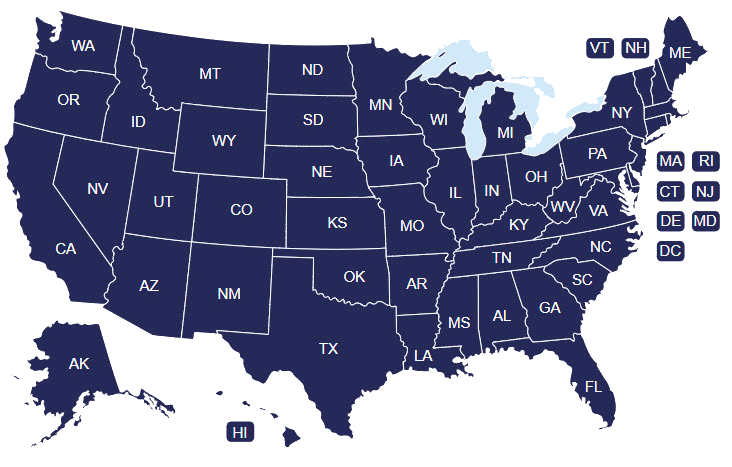What is Economics?
Economics is the study of how individuals, businesses, and governments allocate resources. Our focus is on understanding the choices made in the face of scarcity and the implications these choices have on society. Our curiosity in economics drives us to examine both microeconomics and macroeconomics. While microeconomics focuses on individual and business choices, macroeconomics looks at the big picture, such as national and global economies. Resources and scarcity shape these decisions, presenting challenges and opportunities for growth and development.
Microeconomics examines the behavior of individual agents, such as consumers and firms. We analyze how they interact within markets, determine prices, and allocate resources. Concepts like supply and demand, price elasticity, and consumer behavior are key components.
Macroeconomics deals with broader economic factors impacting a nation or global society. We delve into aggregate indicators including GDP, inflation, unemployment rates, and fiscal policies. Macroeconomists aim to understand how these elements influence economic growth and stability.
Key Concepts:
- Scarcity: Limited resources available to meet unlimited wants.
- Opportunity Cost: The cost of choosing one option over the next best alternative.
- Equilibrium: The state where supply equals demand in the market.
- Incentives: Factors that motivate decision-makers to act in particular ways.
Studying economics equips us with tools to critically analyze real-world issues. From policymaking to personal finance, it helps us make informed decisions for ourselves and the communities around us. Understanding economics empowers us to evaluate complex systems and propose solutions for societal challenges.
Understanding Economics Education
Economics education plays a crucial role in understanding how societies allocate resources. By exploring key areas such as bachelor's and graduate programs, along with essential differences between microeconomics and macroeconomics, we aim to provide comprehensive insights into the educational pathways and concepts involved.
The Importance of Economics in Society
Economics forms the bedrock of our understanding of wealth distribution, resource allocation, and policy making. By mastering economic concepts, we gain a more nuanced view of global markets and societal decisions.
Applied economics helps us analyze real-world issues, offering practical solutions to economic challenges. Knowledge in this field is invaluable, shaping decisions in government, businesses, and nonprofit organizations by using data-driven insights to guide policy and strategy.
Bachelor's Degree in Economics
A bachelor's degree in economics provides a solid foundation in critical economic theories. Many economics majors focus on core subjects such as microeconomics, macroeconomics, and statistics. This four-year degree includes electives in applied economics and related fields, allowing us to tailor our studies to specific interests.
Students often gain analytical skills crucial for roles in finance, consulting, and public policy. Grasping these basics can open doors to diverse career paths. Understanding economic principles helps us interpret market trends and assess economic policies effectively.
Graduate Degree in Economics
Graduate programs delve deeper into economic theory and application. A Master of Economics degree offers advanced study in specialized areas such as econometrics, international economics, and behavioral economics. These programs typically require research projects or a thesis, preparing us for roles in academia, research, and senior industry positions.
Such degrees enhance our understanding of complex economic models and equip us to solve intricate fiscal and societal issues. The level of expertise gained supports high-level economic analysis, crucial for organizations and government agencies.
Comparing Microeconomics and Macroeconomics
Microeconomics and macroeconomics are fundamental branches of economic study. Microeconomics examines individual and business-level decisions concerning resource allocation and pricing. This helps us understand consumer behavior and market dynamics on a smaller scale.
Conversely, macroeconomics looks at the economy, focusing on national economic performance, monetary policies, and fiscal policies. Understanding the balance between these areas allows us to develop well-rounded analyses, impacting economic policy and strategy development. These insights are vital in addressing large-scale economic challenges and planning for sustainable growth.
Economics Certifications and Their Benefits
Economics certifications provide specialized credentials that can enhance career prospects in various fields. These certifications offer recognition of expertise in economic principles, policy analysis, financial management, and development planning.
Economics certifications are essential for professionals seeking expertise in specific domains. Several certifications are available for economists, each with distinct focuses.
These certifications not only strengthen our credentials but also broaden our opportunities in economics.
Careers and Employment Outlook in Economics
In this section, we'll explore the various career paths available for those with a background in economics, highlight current industry trends and opportunities, and provide key salary and growth statistics to help navigate employment prospects in this field.
Occupations within the Field of Economics
Economics offers a diverse range of career opportunities. Traditional roles like financial analysts and economists are common. Financial analysts provide insights into investment decisions, while economists study and analyze data to forecast economic trends. Careers in specialized areas like health economics and environmental economics address specific industry needs.
Those with an economics background may also find roles in data science, where they apply statistical analysis to large data sets. Additionally, economics graduates often become lawyers, using their analytical skills to navigate legal complexities. Work experience in these areas enhances theoretical knowledge and can lead to career advancements.
Industry Trends and Opportunities
The industry is experiencing steady growth, encouraging a more targeted approach to employment in economics. The Bureau of Labor Statistics projects a 5% growth for economists from 2023 to 2033, matching the average for all occupations. This growth translates to approximately 1,000 new job openings annually, largely due to retiring workers or those transferring industries.
Sectors like finance and insurance, health, and environmental management are creating new opportunities as they require economic expertise to address complex challenges. The integration of data science and analytics into traditional economics roles further diversifies available career paths, emphasizing skillsets that handle large-scale data effectively.
Economics Career Salary and Growth Statistics
Salary and career growth prospects in economics vary by industry and role. According to the Bureau of Labor Statistics, economists in finance and insurance sectors earned an average annual wage of $118,410 in 2015, while federal government economists earned $110,470 annually. Job titles often evolve, reflecting how diversified the roles can be.
Advancing Your Career in Economics
In our journey to advance careers in economics, it's crucial to focus on continuous education, professional networking, accumulating valuable work experience, and securing scholarships or funding for further studies. These elements form the backbone of a successful career advancement strategy in this field.
Continuing Education and Lifelong Learning
Continuing education plays a vital role in staying updated with the latest economic theories and practices. We might consider enrolling in online courses from reputable platforms like Coursera, which offer various economics courses for professionals seeking to enhance their skills. Engaging in lifelong learning helps us remain competitive and adapt to evolving market trends, such as data analytics and financial modeling, which are increasingly important in economic careers.
Additionally, pursuing certifications like Certified International Tax Analyst or specialized courses in data analytics can strengthen our qualifications. Programs designed for business economists focus on economic policy and international taxation, enabling us to navigate complex global markets efficiently. This commitment to education fosters a deeper understanding of economic intricacies and drives career progress.
Networking and Professional Development
Building a robust professional network is indispensable for career advancement in economics. We can join associations like the National Association for Business Economics or attend industry conferences to connect with peers and experts. These platforms not only facilitate networking but also offer opportunities for professional development, keeping us informed about the latest industry developments.
Furthermore, participating in workshops or seminars enhances our skills and broadens our perspective on various economic issues. Engaging in discussions at these events allows us to share experiences and knowledge, ultimately leading to potential collaborations or job opportunities. By prioritizing professional development, we continually grow and adapt to the ever-changing landscape of economics.
The Significance of Work Experience in Economics
Gaining relevant work experience is paramount for career advancement. We should seek internships or entry-level positions to apply theoretical knowledge in practical settings. Such roles in governmental agencies, financial institutions, or research organizations provide invaluable hands-on experience.
Moreover, collaborating on real-world economic projects enables us to develop critical thinking and problem-solving skills essential for higher-level positions. By working alongside experienced professionals, we gain insights into industry best practices and the complexities of economic analysis. This experience helps us build a strong foundation for future career growth, making us valuable assets in our respective organizations.
Utilizing Economics in Various Sectors and Resources
Economics plays a critical role across different sectors, influencing public policy decisions, private sector strategies, and non-profit initiatives. We explore how economic principles are integrated into these fields and their impact.
Economics in Public Policy and Government
In the realm of public policy and government, economics helps in shaping fiscal policies, taxation strategies, and welfare programs. By analyzing data and trends, policymakers can make informed decisions to ensure efficient resource allocation.
Economists often craft models to predict economic outcomes and assess the viability of proposed legislation. They play a critical role in budget preparation and tracking economic indicators to guide national economic strategies.
We also see the influence of economics in regulatory frameworks, influencing areas like labor markets, environmental policy, and trade relations. An understanding of economic principles ensures that policies align with national growth objectives and address societal challenges effectively.
The Role of Economics in Private Sector Businesses
In the private sector, economic theories and models inform business decisions, including pricing strategies, market analysis, and production optimization. Companies rely on economic insights to enhance competitiveness and manage risks.
Business economics focuses on how firms make decisions regarding resource allocation, demand forecasting, and cost reduction. This includes applying supply and demand theories to adjust to market changes and consumer preferences.
We see the use of economics in strategic planning, mergers, and acquisitions, where cost-benefit analyses play a crucial role. The understanding of economic principles enables companies to innovate and adapt to global market conditions.
Incorporating Economics into Non-Profit Strategies
Non-profits utilize economics to enhance resource management and maximize impact. By aligning their objectives with economic principles, they can develop sustainable funding models and ensure efficient program delivery.
Economic analysis helps non-profits assess needs, prioritize initiatives, and allocate resources effectively. This can involve cost-effectiveness analyses to determine the best approaches to maximize their social and financial returns.
In addition to strategic planning, economics aids in demonstrating impact to stakeholders through quantifiable results. Non-profits leverage these insights to strengthen grant applications and partnerships, ultimately enhancing their mission-driven work.
Economics Professional Associations
Economics professional associations play a pivotal role in fostering the growth and development of economists worldwide. They offer certifications, resources, and networking opportunities crucial for career advancement. Our focus will be on two prominent organizations that stand out in this field.
American Economic Association (AEA)
The American Economic Association is a linchpin in the economics profession, offering extensive resources and opportunities for economists. Founded in 1885, the AEA provides access to a wide range of online resources, including lesson plans, research data, and conference information, which are valuable for both educators and practitioners.
Membership includes subscription access to respected publications such as the American Economic Review, which offers insights into current economic research. The AEA organizes annual meetings that serve as a platform for economists to present their research, engage in discussions, and network with peers. We value the professional credibility and connections this association can facilitate.
National Association for Business Economics (NABE)
The National Association for Business Economics supports the economic profession through education and certification, focusing on practical applications. NABE offers the Certified Business Economist (CBE) program, emphasizing practice over theory, catering to business economists aspiring to a comprehensive body of knowledge.
Members benefit from a portfolio of courses, conferences, and publications that keep them updated with the latest industry trends. NABE's events provide a venue for professionals to connect and collaborate, further advancing their careers and contributing to the field's growth. This ensures that we remain at the forefront of business economic practices and innovations.
Finding Scholarships and Funding for Economics Education
Financial support, through scholarships or grants, can significantly impact our ability to pursue further education in economics. We should explore various funding options such as university scholarships, industry-sponsored grants, or government aid programs. These resources alleviate financial burdens and allow us to focus on acquiring specialized knowledge.
A proactive approach in researching and applying for scholarships increases our chances of receiving aid. Various opportunities exist, with some specifically targeting studies in economics or related fields. By securing funding, we invest in our education and career advancement without the financial strain that often accompanies further study. Implementing strategic measures to find and utilize these opportunities is crucial.
State-By-State Economics College Rankings
Select a State to Search Colleges & Universities

- Select a State
-
- Alabama
- Alaska
- Arizona
- Arkansas
- California
- Colorado
- Connecticut
- Delaware
- District of Columbia
- Florida
- Georgia
- Hawaii
- Idaho
- Illinois
- Indiana
- Iowa
- Kansas
- Kentucky
- Louisiana
- Maine
- Maryland
- Massachusetts
- Michigan
- Minnesota
- Mississippi
- Missouri
- Montana
- Nebraska
- Nevada
- New Hampshire
- New Jersey
- New Mexico
- New York
- North Carolina
- North Dakota
- Ohio
- Oklahoma
- Oregon
- Pennsylvania
- Rhode Island
- South Carolina
- South Dakota
- Tennessee
- Texas
- Utah
- Vermont
- Virginia
- Washington
- West Virginia
- Wisconsin
- Wyoming



